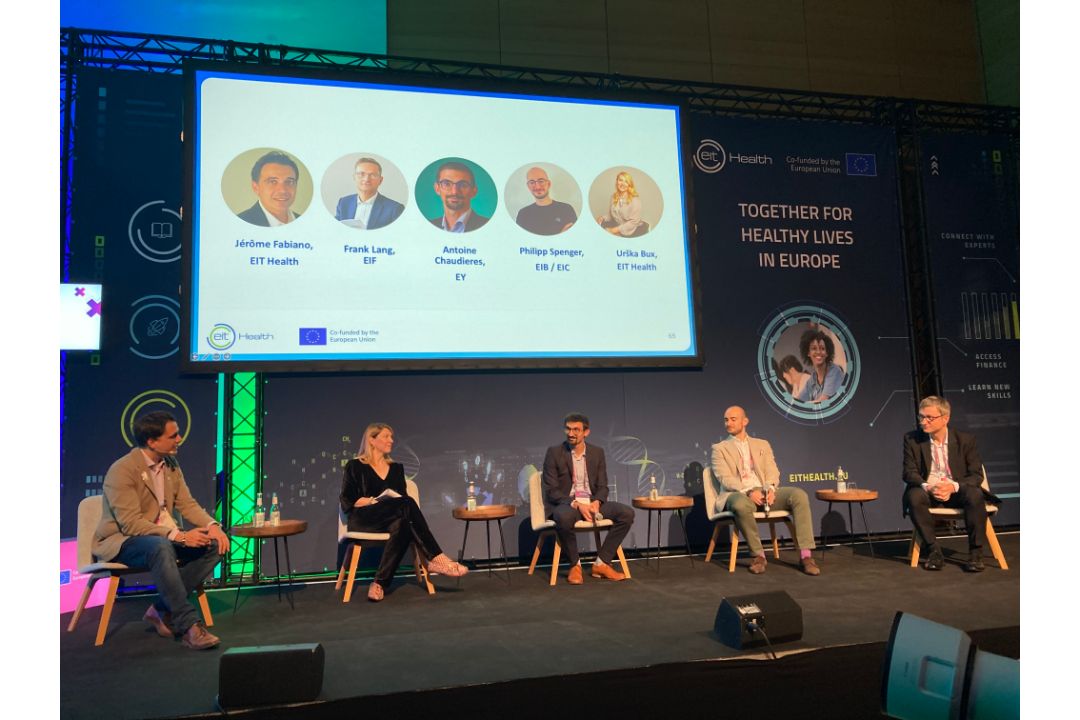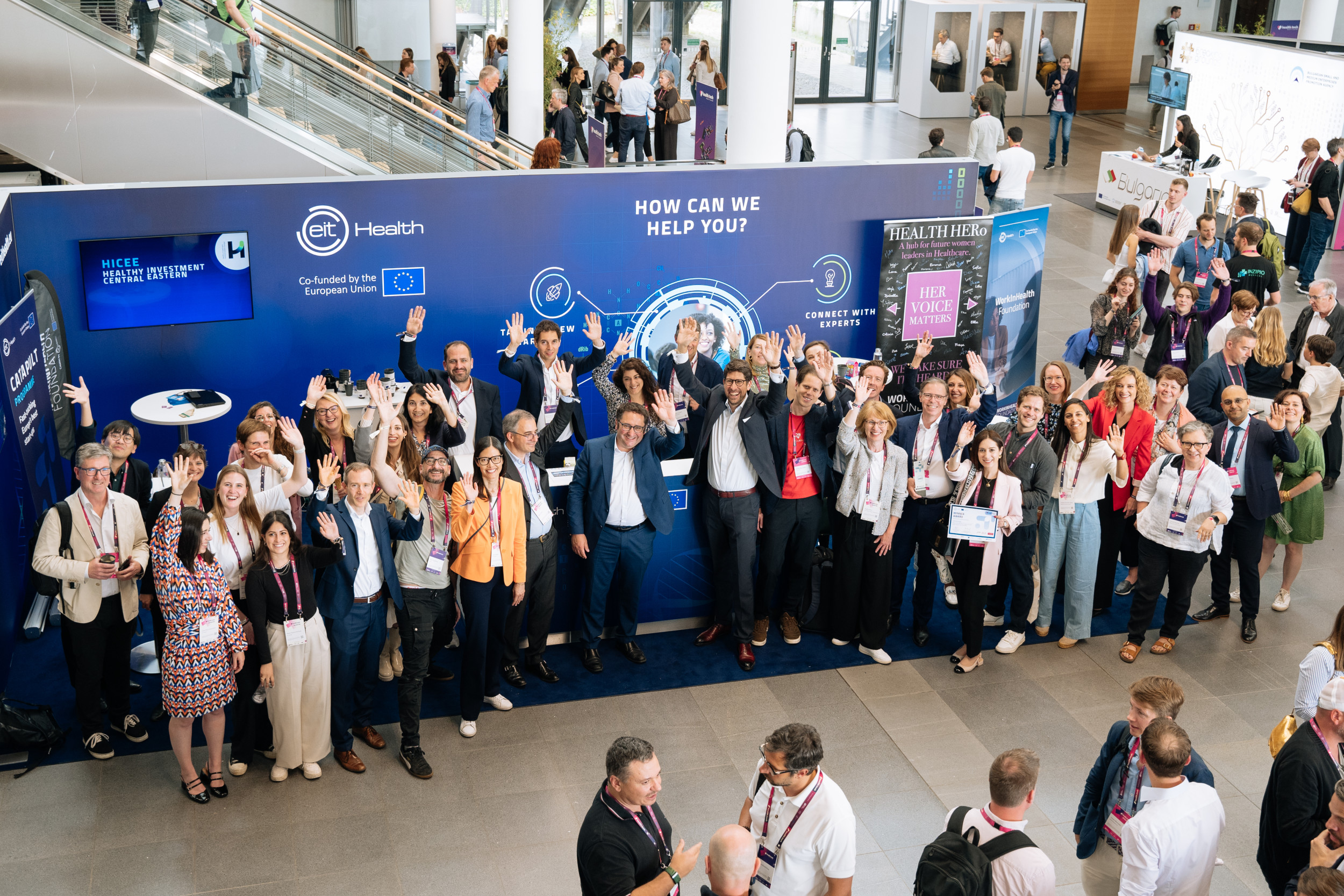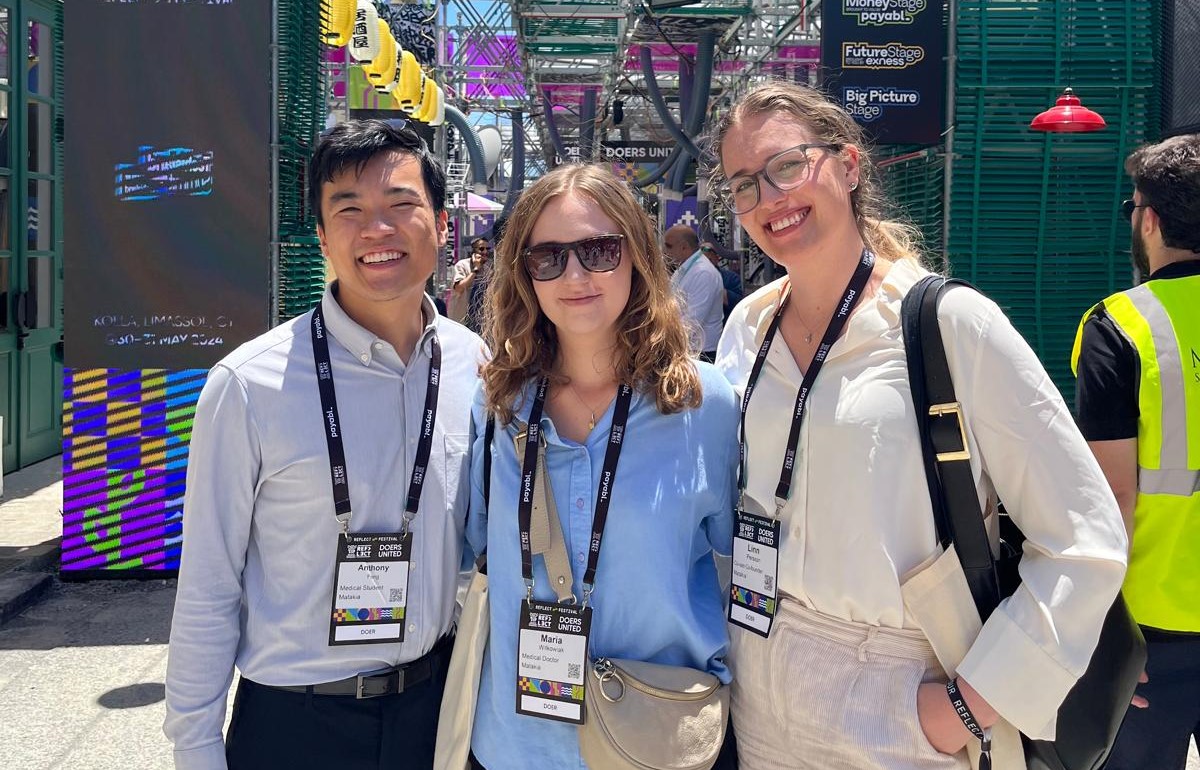3rd March 2021
EIT Health InnoStars lists three new services coming from the Service Excellence Programmes focused on design thinking methodology.
Impact lives and boost your career! – this was the motto of the EIT Health InnoStars Service Excellence Programme, a 2020 pilot initiative that used the design thinking methodology to identify and develop new customer-centred solutions that could support the various stakeholders of the healthcare ecosystem.
“This programme showed participants how to use the design thinking methodology, a unique approach that focuses on solutions as a means to better understand a problem and ultimately develop innovations. I can firmly say that this was a unique opportunity for these young talents to identify the needs of real users and run real testing with exclusive access to the EIT Health network” – said Peter Nagy, Programme Support Manager at EIT Health InnoStars.
The Design Thinking methodology fits the EIT Health’s network approach. To drive innovation and societal impact in Europe, EIT Health, together with its Partners constantly discover new possibilities to improve its activity portfolio and to provide services, products or solutions that satisfy the needs of key players of the healthcare ecosystem: foremostly patients, but also start-ups, research & development centres, hospitals, payers or healthcare providers. The “InnoStars Service Excellence Programme” responded to that objective, making use of the creative and collaborative approach to problem-solving and to create customer-centred solutions.
Multinational teams resolving “wicked” problems
After a competitive selection process 23 talents from five countries – Portugal, Italy, Hungary, Romania and Poland – were chosen to design and prototype services that build on the existing assets of the EIT Health partnership. During the 9-months long innovation journey participants formed 6 teams and interviewed over 100 healthcare innovation stakeholders in the aforementioned five countries. They identified the needs and pain-points of start-ups, patient associations, companies, funding authorities and researchers. Participants used the design thinking methodology to identify and develop solutions with the highest potential of short market entry. By mid-December 2020 teams came up with six different service ideas that have already been validated by potential customers. After the pitching final, three promising ideas were selected and awarded with prizes.
Patients4Innovation, the three-member team, who won gold, created a platform-based B2B service that brings together companies and patients intending to make effective products or services in the field of med tech and digital health, putting end-users at the centre of the creative and productive processes.
“Quite often brilliant ideas from a technological point of view are not enough to meet the real needs of the end-user. For this reason, to reduce time and costs, innovation in healthcare must involve patients through all the different phases” – said Giancarlo La Pietra, a member of Patients4Innovation, who developed the solution along with Antonino Gennaro and Olga Usachova.
Ten%, which won the second prize, created a tailor-made service package for start-ups to guide them through EIT Health business creation opportunities and help them design and build their first prototypes.
“Our solution is designed to help early-stage start-ups break down their challenges into manageable pieces so that they can tackle each hurdle with the assistance of a specialist in the field, resulting in a product or service swiftly reaching the market” – emphasised Ten% in a statement (the group consists of Michal Symulewicz, Mateusz Dworak and Nour Maalouf).
Omega team (Zaki Milhem, Fruzsina Mezei, Razvan Capota and Sonia Muntean), bronze medallists, designed a modular, distributed and highly adaptable consulting service that can support European Digital Innovation Hubs (EDIH).
“A project like Omega will truly provide a paradigm shift in ways to ensure revenue and sustainability for KICs in the context of Digital Europe Programme. It was a great experience to learn and network, to understand needs and take a deep dive into Design Thinking, an essential approach in service design. The main benefit to healthcare is the democratization of access to knowledge, resources and infrastructure, while maintaining a high standard of quality in underdeveloped regions” – wrote Omega in a statement.
More information: peter.nagy@eithealth.eu
New report reveals skills gaps impeding healthtech innovation

A must-read for healthcare start-ups and venture capitalists
Perspectives on the HealthTech ecosystem

Key takeaways from the health.tech conference 2024
